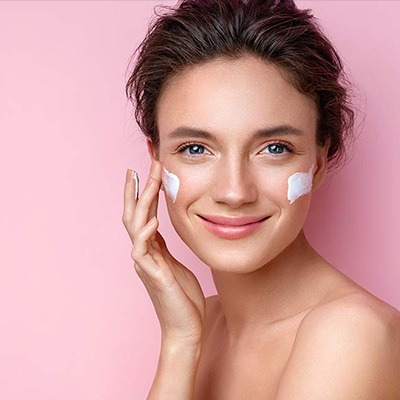Skin conditions have a direct emotional impact and can adversely affect self-confidence and body image. Most of the time, skin conditions are associated with feelings of being isolated, embarrassed, depression, and thoughts of suicide as well. Through this article, we hope to help you deal with dry skin, especially during the winter.
The skin is the largest organ in the body that is almost always exposed to the elements. Therefore, skin disorders arise for many reasons, which may include exposure to these elements or present as an underlying condition.
When you deal with flaky, dry, red and flared-up skin, the skin’s moisture barrier has been damaged. The skin’s moisture barrier comprises fatty acids, ceramides, and cholesterol and is responsible for locking in moisture, which keeps the skin hydrated and healthy. When the skin cannot hold water, it can cause serious hydration problems.
Imagine your skin to be like cement pavement. When the moisture barrier is damaged, it gives way to deep cracks running up and down the pavement. But when it comes to our skin, the cracks formed due to dry skin expose sensitive layers to the dry air, causing the skin to dehydrate.
The good news is that the moisture barrier damage isn’t long-lasting, and with the right choices and lifestyle changes, one can reverse the damage and restore the moisture that the skin needs. However, be mindful of the fact that long-term changes to the skin takes time and that the repair of the moisture barrier can be seen in just a few days.
SOLUTION:
Let us look at the various ways you can hydrate your skin:
- Manage stress: If you can manage your stress and anxiety levels, it will directly impact your skin. Frequent breakouts and skin being ripped off moisture could signal that you need to take a break from whatever is causing you stress.
- Lower the temperature: A hot shower or bath at the end of a cold winter’s day can make you feel relaxed and rejuvenated, but to keep your skin nourished, bathe with lukewarm water for up to 5-10 minutes only.
- Stay Hydrated: Drink enough water that suits your body’s requirements. Set reminders or apps to remind you of sipping on some good H2O.
- No chemicals: Go for gentle cleansers that have little or no chemicals but that contain ceramides, hyaluronic acid, lipids and fatty acids. Anti-bacterial soap and skin care products that contain alcohol and fragrance-filled soaps strip the skin of natural oils. Choose essential oils instead.
- Get your omega-3 fats: Eat a diet rich in fatty acids and omega-3 fats. You can get them in salmon, olive oil and walnuts.
- Use overnight masks: Use a hydrating mask while sleeping. These hydrating masks are designed to penetrate the skin more deeply while you are asleep. The mask works as a barrier and sealant.
- Wear sunscreen: Protect the skin from natural elements like sun, wind and cold. It can be easy to skip wearing sunscreen because of shorter days. However, even in winter, harmful UV light can still affect the skin’s moisture barrier, which is very important to maintain skin health and hydration. It is recommended to use any sunscreen above SPF-70.
- Create a moisture barrier: Use coconut oil or petroleum jelly to create a moisture barrier. Coconut oil has high ferulic and p-coumaric acid levels, which are natural antioxidants that keep skin looking youthful and supple.
- Know your skin: The skin on your face differs from the rest of your body. Know what triggers your skin. If your face is generally sensitive, it may get more sensitive during winter because of the dry air. Note that for the moisture barrier to be healthy, it should react or respond well to serums, toners or other beauty products. Keep your skin routine simple; moisturize, sunscreen in the morning and use a gentle cleanser with a moisturizer at night.
- Use scrubs and exfoliators wisely: An exfoliant or a scrub can make your skin glow and look smooth, but this may work entirely against you if you over-exfoliate using the wrong products. Instead, use a gentle exfoliant; if your skin is cracked or flared up, it is best to avoid exfoliation entirely until it is healed.
At Pranaam, we have the Best Dermatologists in Hyderabad. They are emphatic about the importance of healthy skin through comprehensive examination, diagnosis and treatment of not only the skin but also hair and nails.
We offer specialized care in areas related to skin disorders that are immunologic or genetic in nature, ageing skin, fungal infection, photosensitivity, atopic dermatitis and more. Employing state-of-the-art techniques and the expertise of top skin specialists, surgeons and staff in the field of dermatology, we ensure to boost your confidence, vitality and health that will run skin deep.


